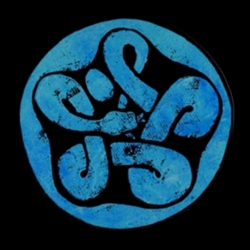íšgy vélem, embertársaink közül nagyon sokan a gyerekkorukkal csak azon az áron tudnak megbirkózni, hogy saját hiteles önmaguktól elfordulnak, hosszas gyakorlással megtanulnak arra ügyet sem vetni: ehelyett külső elvárásokkal való azonosulással vagy éppen azokkal szembeni ellenállással, mindenesetre valami kívülről rájuk oktrojált koordináta-rendszer mértéke szerint alapozzák meg az identitásukat. Az ilyen embernek az ő tényleges milyensége terra incognita. Nincsen önismerete neki, ahogy mondani szokás. Az ilyen kívülről meghatározott embereket tulajdonképpen joggal nevezhetjük a kultúrájuk (a családi, nyelvi, társadalmi kontextusuk, a hagyományaik és a környezetüktől többé-kevésbé készen kapott, legfeljebb lassan alakuló kapcsolatrendszereik) bábjainak.
Ha a báb isteni szerencse folytán, vagy valamilyen hiteles önismereti iskolával való sikeres kapcsolatfelvétel révén aztán önismeretre tesz szert, akkor megtudja, hogy ő valójában milyen, így figyelme valódi önmaga felé fordulhat, és az ál-identitás helyett valódi önmagát veheti végre szemügyre.
Ez eleinte önmagában is lenyűgöző. A nagy “nahát” akár évekig is eltarthat – ahogyan az önmagam megismerése sem szokott egy csapásra menni, legfeljebb nagyon ritka és legendás esetekben.
De azt hiszem, az igazi felnőttség mégis ezen még túl van: valami olyasmi, hogy az ember a saját személyiségét nem tekinti adottnak, amit elvisel, elszenved vagy mondjuk szerencsés esetben bizonyos dolgokért azért kedvel is, vagy akár megtanul kedvelni, elfogadni és adaptív módokon használni, hanem az univerzális tudat szempontjából önmagát szemlélve meglátja saját esetlegességét és alakíthatóságát, felvállalja érte a felelősséget, és nekiáll, és felturbózza. Lassanként (nem kerget a tatár!) kihozza belőle a lehetséges maximumot. Vagy nem? Te mit gondolsz?
KIEGÉSZíTÉS:
Most azt mondta valaki, utána még jön az a kérdés is, hogy jó-jó, de mi az értelme az egésznek.
Szerintem minden, amit gondolok, amit képzelek, az egyáltalán nem más, a világnézetem, az elképzeléseim, a rutinjaim, a figyelmem sajátos, személyes mozdulatai, a gondolati pózaim és a bejárt következtetési útvonalaim, az éveken át csiszolt és hozzád idomult heurisztikám…. mindez együtt nem más, csak az, ahogyan én táncolok. Nagyon sokféleképpen lehet jól táncolni. És nem biztos, hogy nagyon sokat lehet mondani arról, hogy mi az, ami minden szép táncra jellemző, már csak azért sem, mert minden szép táncot még egyáltalán nem táncoltak el… épp hogy csak belekezdtünk.
****************
ENGLISH HERE
****************
I believe that a great many of our human brethren are only able to cope with their childhoods at the cost of turning away from their authentic selves, in fact, through persistent practice, learning not to pay attention to that at all: instead, they base their identities on complying with, or indeed resisting external expectations foisted on them, according to the metric of an externally enforced system of coordinates. For those people, their actual personalities are terra incognita. They do not know themselves, as they say. Such externally determined people could be justifiably called puppets: puppets of their cultures (their family, linguistic and social contexts, their traditions and systems of relationships that they receive from their social environments and which evolve slowly at best).
If, through divine grace, or through successful entry into an authentic school of self-knowledge, the puppets actually acquire knowledge of self, then they learn what they are actually like, so they are able to direct their attention towards the true self, to regard themselves as they are intstead of the fake identities they had used before.
This is in itself quite astonishing to begin with. The great ‘aha’ can last several years – and the acquisition of self-knowledge itself also rarely happens in one fell swoop, with some notable miraculous and legendary exceptions.
And yet I believe that true maturity is even beyond that. It is something like this: you become an adult when you no longer consider your own personality to be a given, something that you tolerate, suffer, or if you are lucky, something you may even find pleasure in, and you do not even stop at learning to like your personality, and to accept it and to make use of it in adaptive ways, but, looking at your personality from the perspective of universal consciousness, you come to see your own arbitrariness and mutability, and you step up and take responsibility for it: you get down to work and you soup it up. Slowly (no hurry!) you make it into the best possible version of itself. Or not. What do you think?
EDIT:
Someone just told me there is another further question that then arises: okay-okay, I can see myself, I can see the world, but what’s the point of the whole thing?
I believe this: everything I think, that I imagine, my world-view, my conceptions, my routines, the peculiar, highly personal gestures of my attention, the intellectual poses I am fond of and my well-worn paths through the jungle of inference, the heuristics I have honed to bespoke perfection through years of life in a zone of dangerous curves… all of that is simply the way I dance. And there are very many different ways you can dance a great dance. And I am not at all sure there is all that much to be said about what is common to all beautiful dances, for many reasons, including the fact that the great majority of beautiful dances have not been danced yet… we have only just started.

